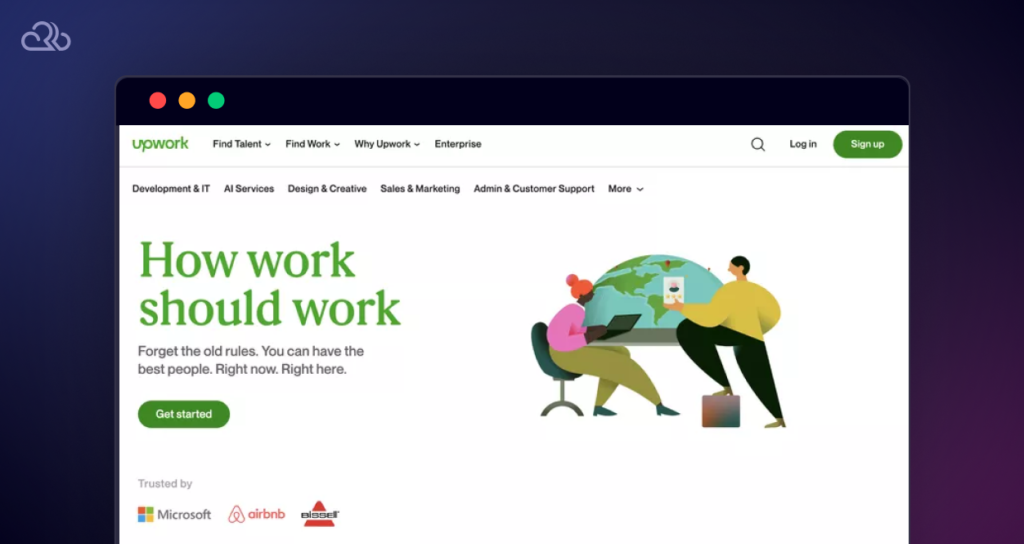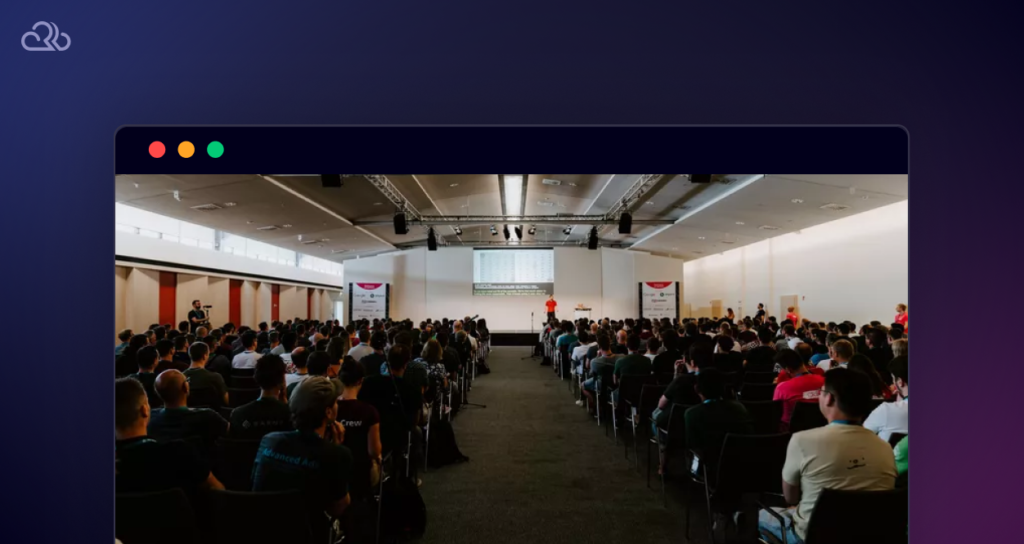

Are you looking to enter the World of WordPress Freelancing? WordPress was conceived on 27 May 2003, humbly birthing what would later become the world’s most-loved virtual printing press. By 2006, it had surpassed 1 million downloads, despite being in its infancy with barely a plugin to speak of.
It’s now 2024, and with more than 20 years for competitors to catch up, there’s still no contender. WordPress is the de facto ruling party in the Congress of Content Management Platforms. From the beginning, it’s been the platform of choice. Not only for individuals but also for companies, newspapers, official institutions, and large international organizations.
WordPress Freelancers are in High Demand
Like with the good old-fashioned printing press, one still needs to know how to use WordPress, maintain it, and get the most from it. That’s where the WordPress specialist steps in. Not everyone has the skills, time, or interest to manage their own website platform or the technology behind it.

Remote Work is Standard
Being a freelance WordPress professional in a world with hundreds of millions of existing WordPress websites means that there will never be a day when you’ll say, “Gosh, I wish there was more work available.” It’s a career path with endless avenues for success. And the best part is that it’s an online business that you can run from home with practically no overhead.

While it’s true that many WordPress experts are still employed in traditional office-based roles, such as in a digital agency, it is not expected for those with skills in WordPress to be bound to any specific location, nor to be associated with a traditional company.
A great part of this is thanks to the global Work From Home (WFH) initiatives that emerged in 2020. These led to broad societal acceptance of the concept of remote work in general, which can be summed up as the slogan:
Work is what we do, not where we are.
But even so, the WordPress developer culture at large has always embraced the idea of digital nomadism. The core WordPress software has been built and continuously refined by a diverse group of creators worldwide. And everything is coordinated over the Internet. So, in a way, you could say that freelancing goes with the territory when it comes to WordPress.
Are you an aspiring WordPress freelancer? Then read on to discover what it takes to thrive as a freelance WordPress services provider, whether designing themes, developing plugins, offering technical support, or assisting with day-to-day WordPress publishing tasks.
Why working with WordPress rocks as a freelancer
Working with WordPress in any capacity (e.g. design, development, support, consulting, or publishing) lends itself extremely well to the style of work known as freelancing.

What is Freelancing?
To be clear, when we say “freelancing”, we don’t necessarily mean “remote working”. The two concepts are quite different, even if there is a conceptual overlap.
In contrast with remote work, which is when an employee of a single company may choose to work from wherever they like, freelancing is a form of entrepreneurship where a person is self-employed and takes on work from one or more clients as an independent contractor.
The Freelancer’s Freedom: Commanding Your Career and Comfort in Pajamas
As a freelancer, you’re the boss—literally. This can be daunting at first, but it’s also incredibly liberating since you not only get to choose your own rates but also who you work for. Oh, and you get to work in your pajamas (even though that’s no longer a perk exclusive to freelancers thanks to the rise of remote working).
On the other hand, as the boss of your own company, you will have to deal with everything else that goes into running a business, such as marketing, accounting, sales, and customer service. You’ll also be responsible for your time management, which is crucial in maintaining a healthy work-life balance.
Thankfully, all this isn’t as hard as it sounds, and just because you are a freelancer doesn’t mean you can’t pay for help with these aspects of business management. We will get into these a bit later in this guide.
Flexibility and Demand: Why WordPress Specialists Thrive in the Freelance Economy?
The freelancing business model is a great fit for WordPress specialists in particular for many reasons, including:
Project-Based Engagements: The Freelancer’s Advantage
Many WordPress website owners don’t need a full-time employee to fulfill the various tasks they need to do. Once a website has been created and tested to be working, the content might not change much over time, which is especially true of many local business websites. Thus, offering your services to multiple clients makes sense, serving each as and when they need you.
Virtual Collaboration: Maximizing Remote Communication Tools
With all the instant messaging options available (voice, video, email, text chat), being present in person is no longer necessary to have productive meetings. A conference call with a client over the Internet can be as effective as face-to-face. And in many cases, it is preferred because neither party needs to be anywhere in particular.
A Market in Demand: WordPress Skills Wanted
It’s an in-demand specialty in the overall freelance marketplace, with thousands of work opportunities constantly posted on freelance job marketplaces like Upwork.
Industry-Independent Stability
It doesn’t depend on the economics of any one industry. Companies in all industries have a need for website services in some form.
Brand Recognition: The WordPress Advantage
WordPress is a well-known brand with instant recognition among clients the world over. If WordPress is good enough for Microsoft and Reuters, it’s good enough for most people.
WordPress: A Tool for All Trades
It’s incredibly versatile and can be used to create websites, blogs, magazines, online stores, community forums, directories, and many more types of websites.
Global Opportunities: Overcoming Geographical Limits
It’s easy to go global. For example, what happens when all the businesses in your area dry up, or the local economy goes south, and no one has the budget for your services? For a WordPress freelancer with an online presence, geographical distance poses no barrier to business.
Self-Led Learning and Growth in WordPress Expertise
It’s very possible to teach yourself WordPress and everything that goes into becoming an expert in it. This can make up for the lack of mentorship one might receive as a company employee, and it means that you can keep upskilling and earning higher rates as you go along.
An Open Source Platform with Infinite Possibilities
A beautiful fact about working with WordPress from a career perspective is that it’s both a simple and a complex tool. A basic WordPress site is super easy to create, but that doesn’t mean you can’t do more advanced things with it.
Quite the contrary: the power of WordPress is that because it is open source, its functionality, and appearance can be extended not only with themes or plugins but even its source code can be changed to accommodate any custom change a client might desire. As you can imagine, this situation creates many opportunities for freelancers of different strengths and experience levels.

From Novice to Expert: Growing Your WordPress Freelance Career
In other words, because WordPress is essentially an out-of-the-box solution for creating and managing websites, you don’t need a lot of experience to get started as a WordPress freelancer. Yet at the same time, there is always something new that you can learn and add to your professional repertoire over time, thereby increasing your demand and overall earning potential.
For instance, you might be a total beginner at WordPress now, knowing only how to use the admin dashboard, create posts, and upload media. Who would pay for that, right? Wrong! Companies do pay for this type of work, and you certainly need not be an expert at programming in PHP to get a paying gig, even if it’s simply to help a company upload a photo gallery or publish a series of blog posts.
Exploring WordPress Freelance Roles
Depending on your specialty, knowing WordPress deeply isn’t just about knowing WordPress. Here are some common freelance roles with a simplified breakdown of each:
WordPress Designer
- Responsibilities: Designing themes and page layouts, choosing color schemes and typography, and generally making things look nice.
- Required skills: An eye for aesthetics and modern web design with basic knowledge of HTML and CSS (optionally: JavaScript and/or PHP).
WordPress Developer
- Responsibilities: Developing plugins, extending theme functionalities, adding new features, fixing bugs, and hosting/server administration.
- Required skills: Good knowledge of HTML, CSS, JavaScript, and PHP, as well as web hosting and Linux system administration (including a typical WordPress tech stack such as LAMP: Linux, Apache, MySQL, and PHP).
WordPress Virtual Assistant
- Responsibilities: Using the WordPress dashboard to upload/crop/resize images, edit and publish posts and pages, and perform other manual tasks.
- Required skills: Basic communication skills, data entry, image editing, and attention to detail.
Of course, these are only a few typical roles in theory. In practice, there are many other niche services that can be offered by a WordPress freelancer (say, content moderation on a WordPress-based forum), and sometimes a developer might also do design (and vice versa). Overall, there’s something for everyone depending on whether you’re more creative or logical.
Essentials of success as a WordPress freelancer
So you’ve decided to become a freelancer specializing in WordPress. Great decision — you may now pat yourself on the back. Truly.
In the following sections, we will cover some of the key elements of success that many new freelancers tend to overlook, much to their detriment.
Specifically, we will talk about how to:
- Boost your productivity in a remote work or freelancing environment.
- Find gigs in the competitive freelance job market.
- Stand out as the freelancer who’s the perfect fit for the job.
- Find networking opportunities in the WordPress space.
- Expand your set of services by improving your skill set.
- Manage your finances for a sustainable career.
Let’s get on with it, then.
Boosting your productivity
One of the biggest mistakes many freelancers make is wasting time. Often, it’s not that obvious that you are even doing so, as procrastination can take on a million subtle forms.

Here are a few tips on how to make the best use of your time:
Track your time
If you’re charging hourly for your work, a time-tracking tool can be essential to ensure you bill your clients accurately. And if you’re charging per project (or deliverable), time-tracking is just as important as it helps you stick to the actual scope of the project.
Create templates for client management
Although you want to treat each client individually, the use of templates can help save a lot of time. One example is a proposal template, where you outline how you will approach a commonly encountered problem, how long it will take, and how much it will cost. You can then save the template and customize it for each new client.
Use plugins where appropriate
WordPress plugins are all about increasing productivity by not having to reinvent the wheel every time. For example, rather than coding your own photo gallery, use one of the dozens already available in WordPress’s plugin collection. It’s a no-brainer, really.
Work on your communication skills
No matter how well you talk the talk, you can always do better. As they say, people do business with people they like, so spend time understanding how clients respond to your proposals and communications and constantly refine your approach.
Finding gigs
You might have all the skills in the world, but if you don’t know how to find a market for them, all your efforts will be in vain.
The success of your freelancing business relies on how well you market yourself, so here are a few avenues to pursue:
Online freelance platforms
The top freelance marketplace that everybody knows is Upwork, but there are other good opportunities for WordPress experts on other marketplaces such as Post Status (for exclusively WordPress jobs), Freelancer, Toptal, People Per Hour, and Fiverr.

Paid advertising
If you have the budget to invest in advertising, this is a surefire way to acquire clients quickly. Make sure that your ads lead to an attractive, persuasive landing page that explains what you offer and shows your best pieces of past work in a neat portfolio.
Word of mouth
Sometimes it only takes one client to get the ball rolling. If you do good work for them, they’ll be naturally inclined to refer you to others.
Volunteer work
Not to suggest that you do all your work for free, but contributing code or other efforts within the WordPress community can easily lead to paying contracts later, as it’s free advertising that puts you in front of the people who may need exactly the solutions you can offer.
Cold calling/door-to-door
Once you’ve become established, most of your clients might come from referrals or from people who contact you first. Until then, however, you might have to put in some extra legwork. Directly soliciting work by approaching businesses who might need your services is an age-old tactic. Just make sure you don’t cross the line into spam, especially if you are sending out many emails, for instance.
Standing out from the crowd
Let’s be real: There’s a lot of competition out there. Since this fact cannot be ignored, it’s a good idea to learn how other freelance WordPress experts managed to stand out. There are hundreds of such case studies online, so settle in and get reading.

One common thread in many freelancer case studies is the need to niche down and specialize in some aspect of WordPress that isn’t being serviced as well as the others. Beyond specializing in a high-demand service, here are some other ways to get ahead of the pack:
Build a portfolio website
Your portfolio website is a place to showcase your best work, and as a bonus, the website itself can act as its own portfolio piece. Don’t bother displaying mediocre projects or those you’re not that proud of; instead, even if you only have a small sample of projects to showcase, it’s important to pick only the best to show to potential clients.
Write your own case studies
A portfolio piece is typically displayed on its own, with little explanation of the processes that went into it. What clients really want to know, however, is how you actually approach the problems that they pose. Presenting a case study can help you walk clients through the story of a certain portfolio piece from proposal to completion. This helps build immediate trust and makes you much more memorable.
Gather testimonials
Social proof is one of the most effective ways to persuade clients to hire you. Once you have finished a project, don’t be shy to ask the client for a testimonial. Even a single glowing testimonial displayed on your portfolio site can greatly increase your chances of being hired.
Contribute to WordPress.org
For WordPress developers especially, clients are looking for whether you have any existing reputation they can check on. Making public contributions to WordPress.org, whether helping to build a free plugin or creating a new theme can be a brilliant way to make a name for yourself. Find out more on the Make WordPress website.
Always go the extra mile
This is classic wisdom that never fails. Don’t overpromise and underdeliver; instead, aim for over-delivery on every project. This is not to say that you should work for free, but if an opportunity presents itself for you to add a little extra value that your client wasn’t expecting, then you’re far more likely to gain happy, long-term clients.
Networking
This isn’t just what you do when you connect a new server to the Web! Networking, as in meeting, socializing, and collaborating with others in the WordPress industry, is the key to unlocking opportunities you never imagined were possible.

As a freelancer, much of your work will be done in physical isolation from other people since you’re likely to be running a home office and meeting clients virtually instead of in person. Dedicating time for local networking is not only essential to your sanity but also has many other benefits, including the ability to gain new business from event attendees and the prospect of potential collaboration with other freelancers.
WordPress.org is very involved in organizing meetups and other networking events. For more information, visit events.wordpress.org. You can also find local meetup groups in your area on the WordPress page at Meetup.com. If nothing is listed for you there, browse the WordPress topic page for events nearby.
Another great website for WordPress networking is Post Status, a membership site with a WordPress-focused job board where you can connect with clients directly. In addition to these areas, don’t forget to join any of the thousands of WordPress networking groups on Facebook, Slack, Discord, and so on.
Expanding your WordPress skillset
Being a freelancer of any kind requires that you keep up to date with industry trends, lest your services become outdated. Now, being a WordPress freelancer can be even tougher in this sense because of the rate at which WordPress is constantly evolving. Needless to say, staying in the loop with new features and version updates is essential to staying relevant.
Going further, the point of any career is based on progression — whether it’s progressing in your own self-development or simply earning higher rates than the year before. And while you might be comfortable with the skills you already possess at the moment, the time will come when you feel the need to extend your horizons.
The best freelancers are always learning and improving because they know that others are doing the same. Don’t be the one who gets left behind; instead, factor in the time you need to work on learning new skills and get to it.
One of WordPress’s wonders is that it’s easy to learn new skills and deepen your technical knowledge. The WordPress code base is open source and well documented, so making an effort to read through it will make a huge difference in how you present yourself to clients and how you develop solutions.
Learning as much as you can about how WordPress works, including how plugins mesh with the core software and how themes are built from scratch, can make you an incredibly versatile, and thus valuable, freelancer.
Here is a collection of resources to keep you informed about the latest news, trends, and skills.
Podcasts
YouTube Channels
Blogs
Managing your finances
Finally, let’s talk about finances. As mentioned, freelancers are responsible for all their own pricing, bookkeeping, and taxes. This includes calculating your rates in such a way as to be sustainable, keeping track of expenses vs. income, as well as a handful of other financial management tasks common to all businesses.
If you opt to work exclusively through a freelance job marketplace like Upwork, then, fortunately, you won’t have to deal with creating your own invoices or keeping track of all payments in one place since the system keeps a record of all your financial activities for you. It’s a great perk, but not everyone goes all in on a single freelance job site, and you might have a mixture of clients from various channels.
On the other hand, if you are working for clients directly you will likely need help keeping all your financial records organized. Unless you are also an accounting whiz, it would be wise to invest in financial management software such as:
Wrapping up
Only five years ago, freelancing was seen as a somewhat fringe business model, reserved for all but the most exclusive professionals. Since 2020, however, all that has changed.
With the rise of remote work, where physical location no longer matters to many businesses, freelancing has become a highly promising career path that holds a huge earning potential and a host of other benefits for those who can adapt to this style of work.
Hopefully, the insights offered here have given you a kickstart in the right direction. Thanks to the ease with which freelancers can now connect, collaborate, and do business with clients worldwide, isn’t it about time you got started? Your future of financial freedom awaits!








